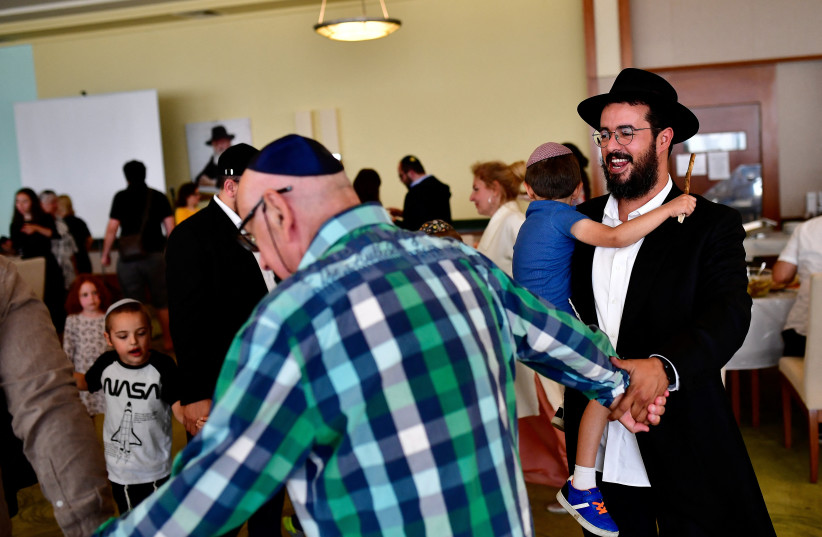Neomi Gluzman Kravchenko plays with her son in a kosher shelter on the banks of Hungary's Lake Balaton - a refuge for her and her Jewish community hundred of miles from their war-ravaged homes in Ukraine.
The psychiatrist from Kharkiv and millions of other Ukrainians fled after Russia launched its invasion on Feb. 24, finding protection wherever they could with families and charitable organisations.
Many Jewish families passed through the 'Machne Chabad' rescue village on their way to other destinations. "People went to Israel ... Some have gone to the USA," she says.
Others, like her, are still there over the border in Hungary, pausing a while and wondering if they can wait out the war.
Keeping up the spirits

Earlier this week, families kept their spirits up with a day of dancing and eating and religious celebration.
Those traditions had flourished in Ukraine before the conflict, said Slomo Koves, chief rabbi of the Association of Hungarian Jewish Communities (EMIH), which runs the center on land provided by Hungary's government.
"Jewish life was so thriving, so strong, so rich. Just before the war, they say it was like on a peak ... And that's why it's such a shame that all this just scattered in one day because of the war.
"Everybody hopes that they will have a chance to go back, to go home, and to restart this Jewish life."
Association of the Hungarian Jewish Communities Chief Rabbi Slomo Kove
About 400 people live in the camp, the largest of its kind in Europe, run by the EMIH and the Ukrainian Jewish Federation on the site of a former summer resort for communist leaders.
Another of the residents is software developer Saul Melamed, who had already been forced to flee him home in Ukraine's Donetsk region years before the invasion, during fighting there with Russian-backed separatists.
That time he headed to Kyiv. This time he had to cross the border to find safety.
"The longer the war lasts, the smaller the chances that people would return," he said.
